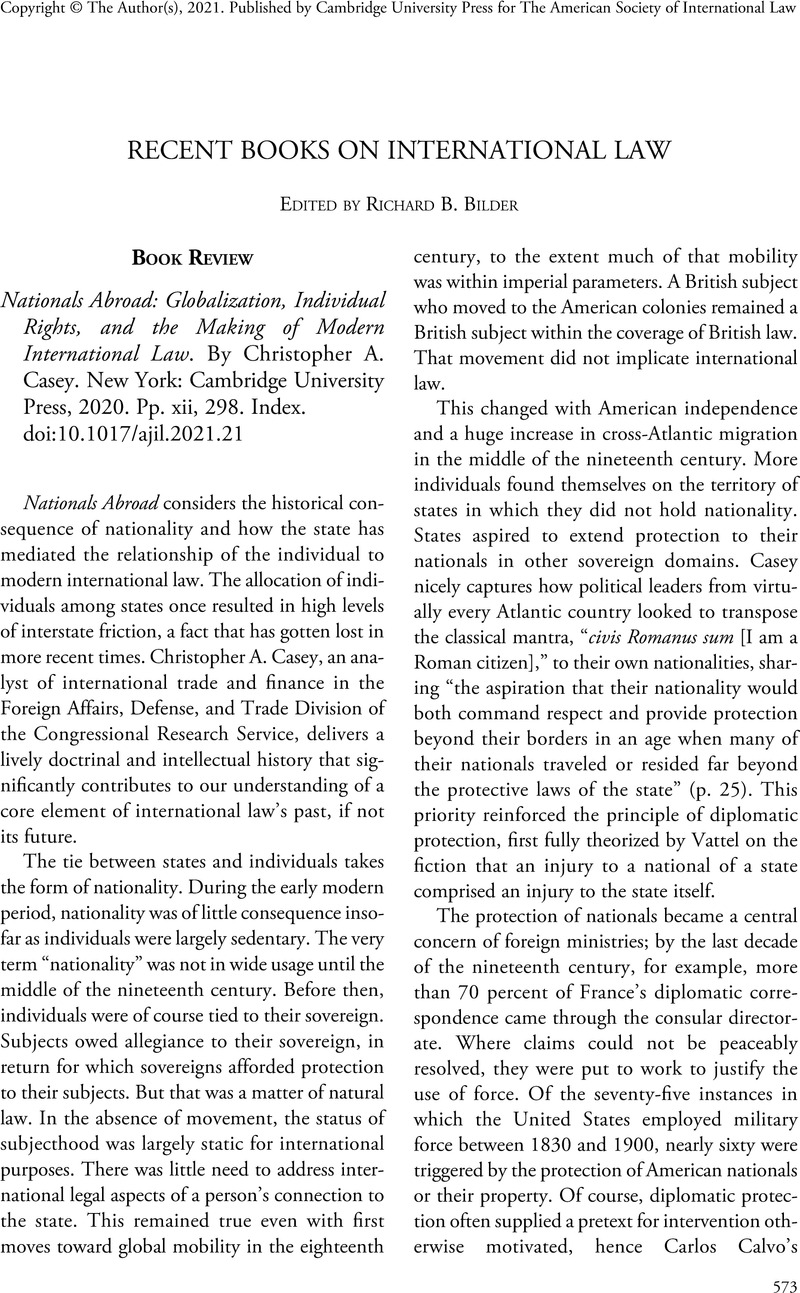No CrossRef data available.
Published online by Cambridge University Press: 21 July 2021

1 Most familiar to U.S. scholars of the subject will be Edwin Borchard, who published a magisterial treatment of diplomatic protection in 1915. Edwin M. Borchard, Diplomatic Protection of Citizens Abroad: or the Law of International Claims (1915). This book, uniquely among other contemporary treatments, also considers important continental sources, working from the author's apparent command of French, German, and Italian.
2 The naturalization rate was much lower in Latin America. See Acosta, Diego, The National Versus the Foreigner in South America: 200 Years of Migration and Citizenship Law 53 (2018)CrossRefGoogle Scholar.
3 Casey tells the interesting story of how, at least before the adoption of the League of Nations mandate system, imperial subjects enjoyed protection on par with their metropolitan overlords. “In the international realm there was a theoretical legal equality that was impossible domestically” (p. 65).
4 For other more narrowly framed, historical treatments of these disputes, see Lucy E. Salyer, Under the Starry Flag: How a Band of Irish Americans Joined the Fenian Revolt and Sparked a Crisis Over Citizenship (2018) and Nathan Perl-Rosenthal, Citizen Sailors: Becoming American in the Age of Revolution (2015).
5 As Casey notes, this perspective was “selective,” given existing controls on putatively undesirable immigrants (p. 119). The late nineteenth century saw the imposition of racist immigration measures in the United States in the form of the Chinese Exclusion laws.